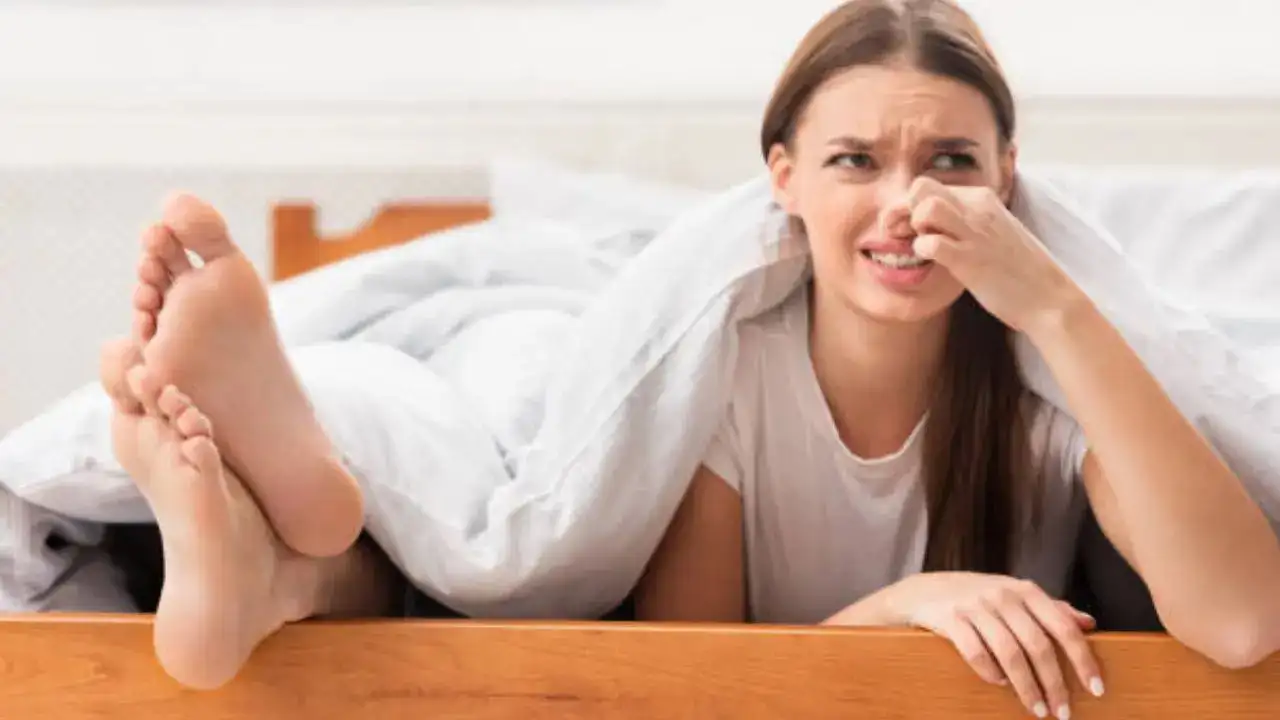
While you may not be able to avoid it altogether, you can change up your foot care game with the help of a few tried-and-tested steps
It happens with everyone once in a while that you may pull off your shoes and immediately make a face. That awful smell coming from your feet says it all. Also known as bromodosis, foot odour is a common issue that happens with people across genders and ages.
Why do feet smell?
Doctors say all feet have some smell to them, which is inevitable. An average human foot contains over 250,000 sweat glands, and just like the rest of your body, your feet also crawl with bacteria. Foot odour and infections happen when the bacteria that live on your skin and in your shoes begin to eat your sweat.
Experts say, while you may not be able to avoid it altogether, you can change up your foot care game with the help of a few tried-and-tested steps that help reduce the incidence of smelly feet:
Always wear socks
It is important to wear socks whenever you wear shoes to help address smelly feet and reduce the incidence of sweaty feet. Socks - especially those made from sweat-wicking materials—absorb sweat and reduce all kinds of odours.
Socks are also easy to change, and doing so may reduce the odours that may otherwise linger inside a person’s shoes.
Soak your feet
It is also important to properly and thoroughly clean your feet, which requires more than just rinsing them in a quick shower.
For a salt soak, take a tub of warm water, dissolve half a cup of Epsom salt, and soak for about 10-20 minutes. According to experts, Epsom salt pulls moisture out of your skin, reducing the presence of bacteria. You can also try doing a vinegar soak, for which you can combine two parts water with one part vinegar in a tub or large bowl of warm water and soak for 15-20 minutes once a week.
Keep your feet dry
Make sure to always keep your feet dry, especially after bathing, soaking, or swimming. Unpleasant odour mostly comes from moisture, and so, it is important to keep feet, shoes, and socks as dry as possible.
Replace insoles
From time to time, make sure to replace your shoe insoles with odour-reducing or antibacterial insoles. Also, you can purchase an antibacterial or disinfecting spray to use on the insoles.
Exfoliation
You must regularly scrub your feet to remove dead skin cells that bacteria like to feed on. According to experts, while bathing, use a pumice stone 2–3 times each week to avoid buildup. People should also wash their feet every day with antibacterial soap, paying close attention to the areas between the toes.
When should you consult a doctor?
If you experience a new onset of smelly feet, you must properly inspect your feet for signs of sores or cuts that could be infected. Examine properly to look for any abnormalities.
If there are any signs of wounds on your feet or redness, red streaks, or swelling, it may be a sign of infection. Make sure to consult a medical professional to address this immediately, especially if you have diabetes, as you may experience complications.
Get Latest News Live on Times Now along with Breaking News and Top Headlines from Health and around the world.
